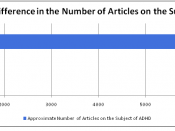Chapter 10 b
COMMUNICATION
I. Communication Development in Young Children with Special Needs
A. Metal Retardation
1. receptive and expressive skills
2. learn all morphological components of language
3. syntax skill are delayed not different
B. Learning Disabilities
1. Difficult to diagnosis in preschool-aged children
2. brains have difficulty interpreting what they hear or see
3. inefficient or immature neurophysiological systems
4. poor listening skills hyper or hypoactivity
5. distractibility
6. perseveration
7. disinhibition
8. need extra time to master the basics of oral language
9. language based problems will contribute to later problems with reading, math, writing, and social behavioral functioning
C. Behavior Disorders
1. not mature neurologically (act out)
2. have undetected hearing and vision problems
3. responses to language and nonlanguage events are inappropriate
4. Children with no supervision or inappropriate role models may say and do unexpected things.
5. need a highly structured, organized environment
6. essential to provide a structured language environment
a. words make sense
b. consistently applied to experiences
D. Specific Speech Disorders
1. Fluency
a. Forward flow of speech (opposite of stutter)
b. More males are dysfluent than females
c. Onset of dysfluency is usually between 3 -5
d. Hereditary not learned
e. Found in combination with other problems
f. Influences a child's social and emotional statur
g. Speech-language pathologist and parent must work as a team
2. Articulation
a. Baby talk
b. Table 10.2 and articulation development
c. Professional assistance is needed if articulation is severely delayed.
3. Voice Disorders
a. Problems with pitch
b. Too high, too low, loudness
c. Harshness, hoarseness, breathiness
d. Hyper or hyponasality, problems with resonance
e. Require professional intervention
4. Clef Palate and OTHER Craniofacial Anomalies
a. medical conditions that require specialized care
b. often surgery is involved
c. in newborns, the act of sucking...


